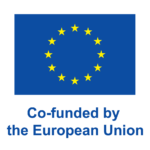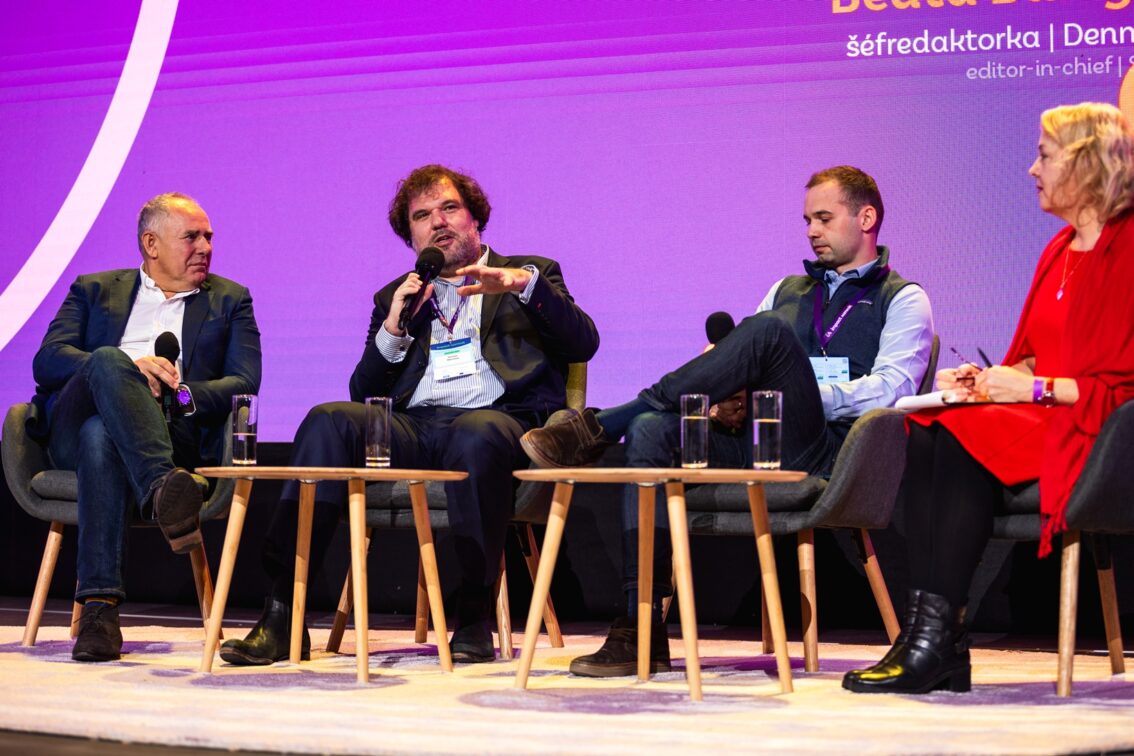Philanthropists at the Impact Summit: Should Nonprofits Accept Money from Oligarchs? (Video)
Hungarian entrepreneur Zoltán Varga, Václav Muchna from the Czech Republic, and Andrej Kiska Jr. representing Slovakia discussed the responsibility of philanthropy and business in supporting democracy in the Central European region.
Philanthropists from the business sector are an integral part of civil society, whether they support education, the environment, or culture. Their involvement in promoting democracy and independent media is particularly significant. This was the topic of the discussion Does Democracy Need Philanthropists? at the Impact Summit, featuring three businessmen — Zoltán Varga (Hungary), Václav Muchna (Czech Republic), and Andrej Kiska Jr. (Slovakia) — in conversation with Beata Balogová, editor-in-chief of SME daily.
Business leaders are often reluctant to publicly address issues of the rule of law and democracy. However, Andrej Kiska Jr. believes that values matter, and that business thrives best in open democracies with strong institutions. “The best thing you can do is support liberal democracies,” he advised entrepreneurs.
Václav Muchna, the founder of a global software company, advocates for transparent conditions in business and society. He is actively involved in the Endowment Fund for Independent Journalism and the Alliance for a Modern State, which he financially supports along with other Czech entrepreneurs. He disagrees with the idea that philanthropists should remain apolitical. “That’s not how it works. We are absolutely influenced by the environment in which we do our businesses,” Muchna said, emphasizing the importance of transparency. Before the elections in the Czech Republic, he openly supported a specific political party, disclosing the amount he contributed and explaining his reasons in a social media post.
Zoltán Varga, CEO of Central Media Group, one of Hungary’s largest independent media companies, explained why he supports independent journalism and democracy: “Values such as integrity, protecting friends, children, colleagues, the future, and hope for a better tomorrow — that’s the reason. It must come from personal integrity and a sense of responsibility for the country.”
He also expressed a clear stance on whether civic organizations should accept donations from controversial individuals and companies. “Such money should be rejected,” Varga said firmly, recommending crowdfunding as an alternative solution.
Watch the full discussion below (note: the video is in English, without Slovak subtitles).
Impact Summit is co-financed by the European Union.
 Co-funded by the European Union. Views and opinions expressed are however those of the author(s) only and do not necessarily reflect those of the European Union or European Education and Culture Executive Agency. Neither the European Union nor the granting authority can be held responsible for them.
Co-funded by the European Union. Views and opinions expressed are however those of the author(s) only and do not necessarily reflect those of the European Union or European Education and Culture Executive Agency. Neither the European Union nor the granting authority can be held responsible for them.






